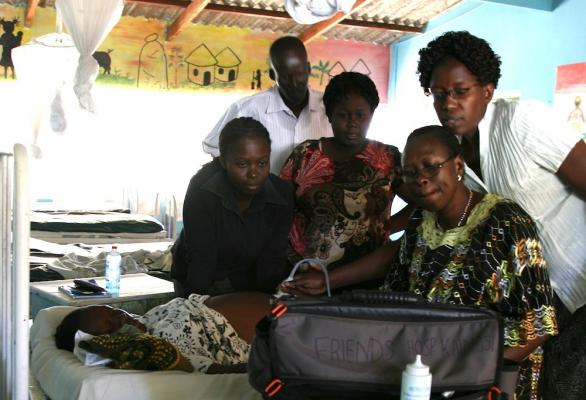
October 19, 2017 — African American women were found to be twice as likely to be diagnosed with peripartum cardiomyopathy as compared to women of Caucasian, Hispanic/Latina, Asian and other ethnic backgrounds, according to a new study. The study, the largest of its kind, was published in JAMA Cardiology by researchers from the Perelman school of Medicine at the University of Pennsylvania.
Peripartum cardiomyopathy (PPCM), a form of heart failure that occurs in the last month of pregnancy or up to five months following delivery, can be life-threatening. The new study is the first to pinpoint racial disparities associated with severity and effects of the condition.
“Not only are African American women at twice the risk, but in this study we found they also took twice as long to recover, they were twice as likely to worsen before getting better after diagnosis, and they were twice as likely to fail to recover altogether, meaning their heart failure persisted for months following delivery,” said senior author Zoltan Arany, M.D., Ph.D., an associate professor of cardiovascular medicine and director of the Cardiovascular Metabolism Program.
In this retrospective study, researchers evaluated the electronic medical records of 220 patients who had been diagnosed with PPCM or heart failure between January 1986 and December 2016 at the Hospital of the University of Pennsylvania, Pennsylvania Hospital and Penn Presbyterian Medical Center. The team analyzed patient demographics such as age and ethnicity, in addition to the patient’s ejection fraction (EF) — the measurement of the percentage of blood leaving the heart each time it contracts — and whether the patient delivered twins, or had a cesarean delivery.
Researchers determined that African American women presented with symptoms of PPCM at a younger age — the average age was 27 years old — than non-African American patients, who averaged 31 years old at the time of diagnosis. African American patients also presented with a lower EF, and they continued to have a lower EF as compared to non-African American patients even after follow-up. A greater portion of African-American women also had worsening EF even after they began treatment, which caused to them take longer to recover than the others.
“While we know that African American women are at greater risk for PPMC, the disparity in disease diversity at presentation and the subsequent progression of the condition in this patient population was staggering,” said the study’s lead author, Olga Corazon Irizarry, M.D., a first year obstetrics and gynecology resident.
Another interesting finding from this study was the correlation between twin pregnancies, cesarean delivery, gestational hypertension and a PPCM diagnosis. African American women were found to be less likely to have twin pregnancies and to deliver via cesarean than their non-African American counterparts. But, African American women were more likely to experience chronic hypertension, which could be a risk indicator of PPCM.
“Our study, while a retrospective one, opens the door for even more research on this subject, to find out why these women are more at risk,” said Jennifer Lewey, M.D., MPH, an assistant professor of cardiovascular medicine and director of the Penn Women’s Cardiovascular Center. “Is this risk increased due to genetics, socioeconomic status and access to care, or due to contributing medical problems such as hypertension? Our next step will be to answer these questions, and identify how we can proactively diagnose and potentially prevent such a dangerous diagnosis in this at-risk patient population.”
For more information: www.jamanetwork.com/journals/jamacardiology
Related Women's Heart Health Content:
New Advice Will Help Women with Congenital Heart Defects Navigate Pregnancy
Diagnostic Differences in Women’s Heart Health
VIDEO: Differences in Cardiac Complications and Presentation Between Men and Women — Interview with Cindy Grines, M.D.
Cardiac Imaging Reveals Roots of Preeclampsia Damage in Pregnant Women
Marked Increase in Cardiovascular Risk Factors in Women After Preeclampsia
VIDEO: Sex Differences in Diagnosing Heart Disease in Women — Interview with Doreen DeFaria Yeh, M.D.
VIDEO: How to Build a Successful Women’s Heart Center — Interview with Malissa Wood, M.D.
Find more articles on women's heart issues in the Women's Cardiovascular Health channel


 November 12, 2025
November 12, 2025 









